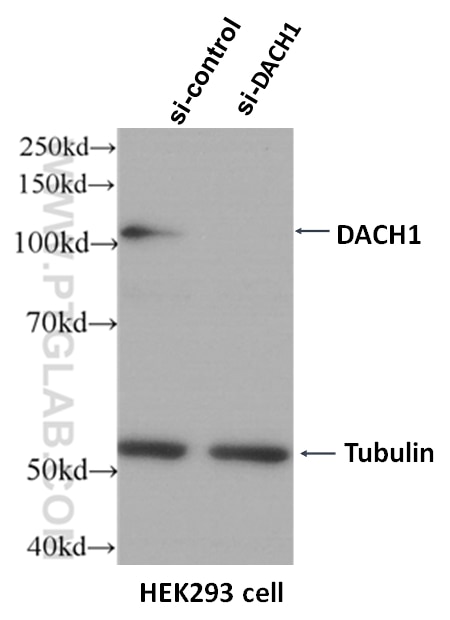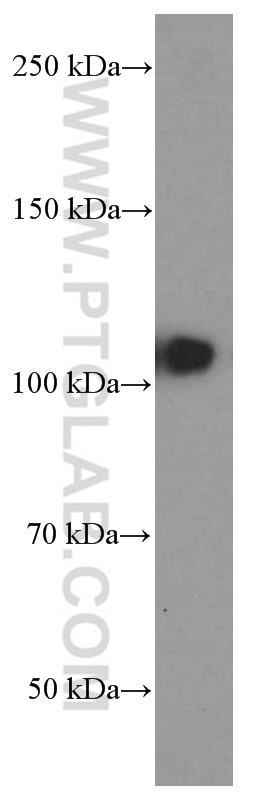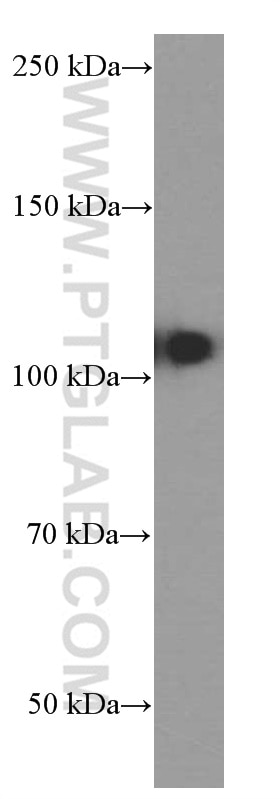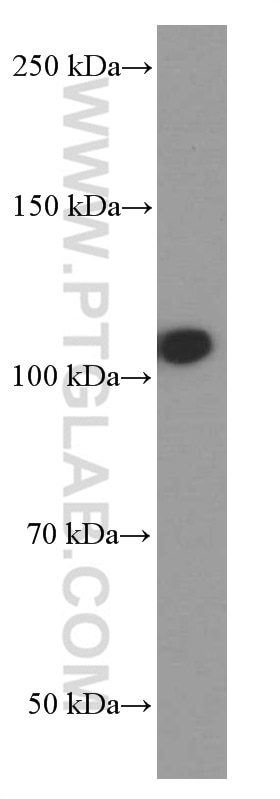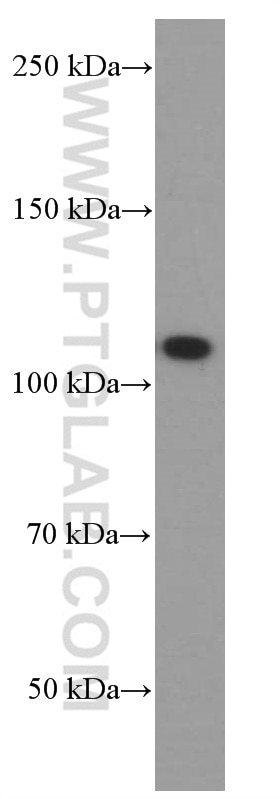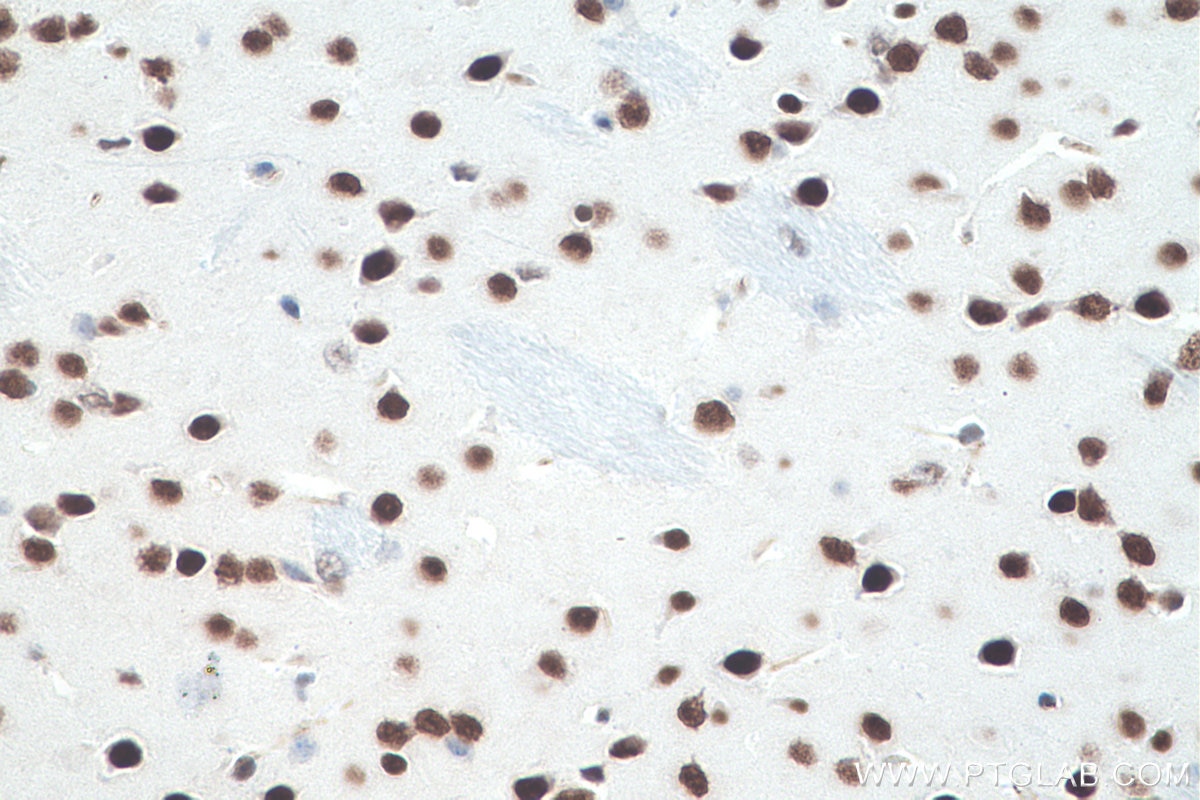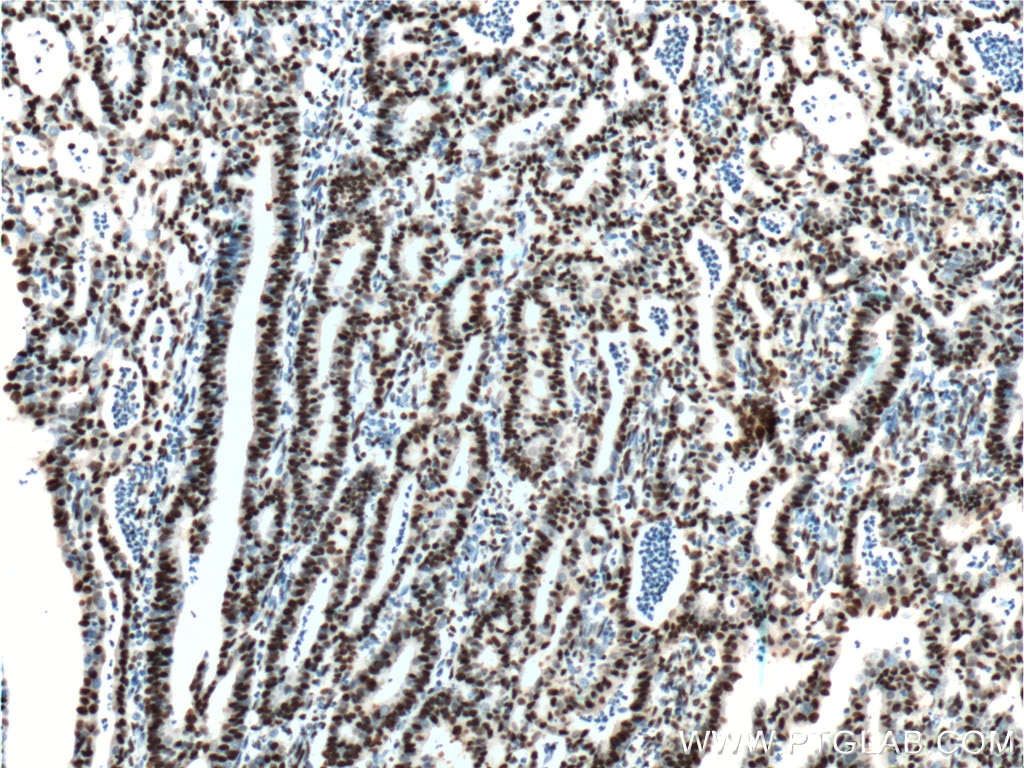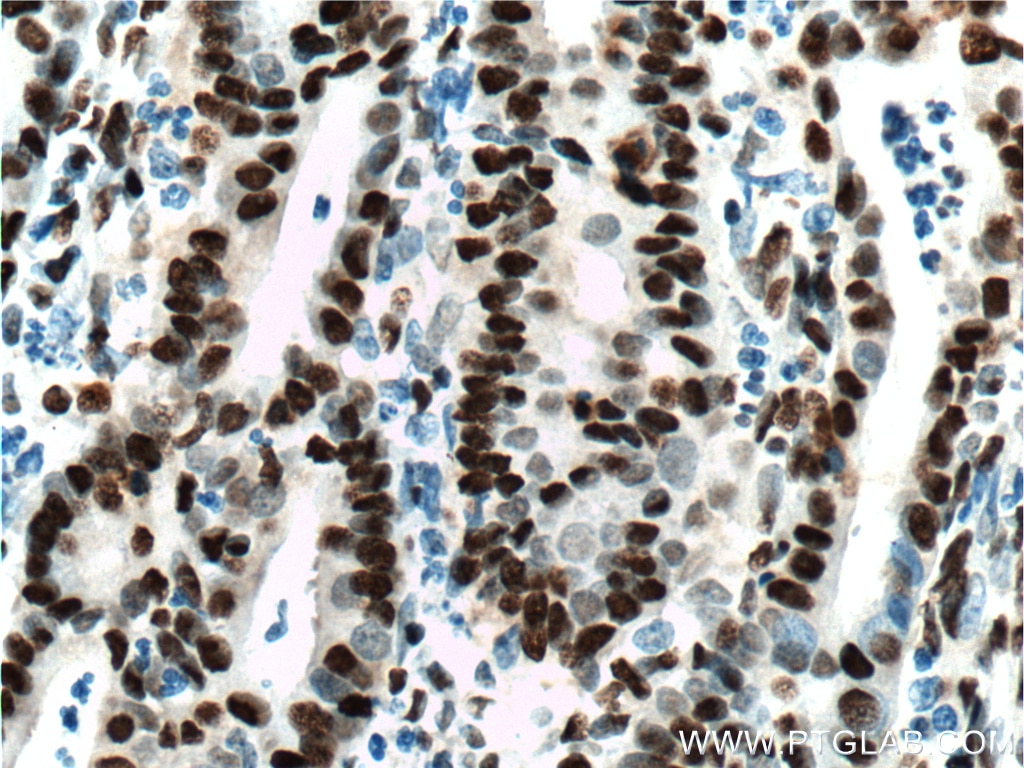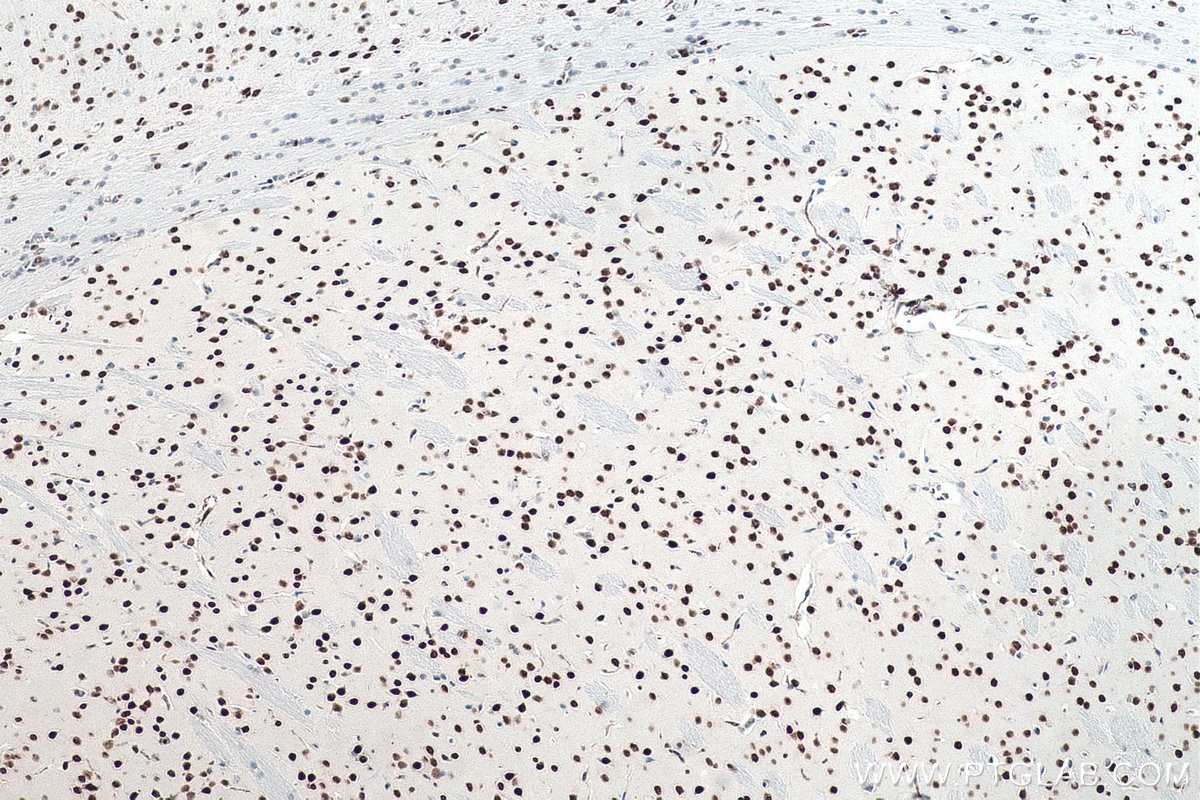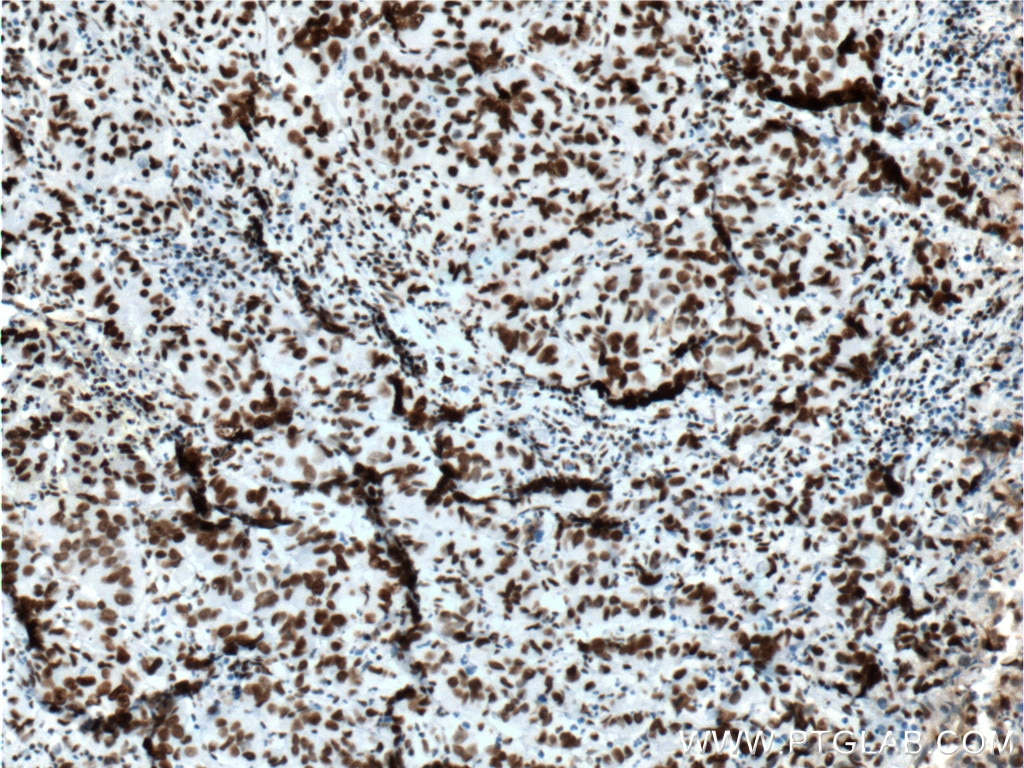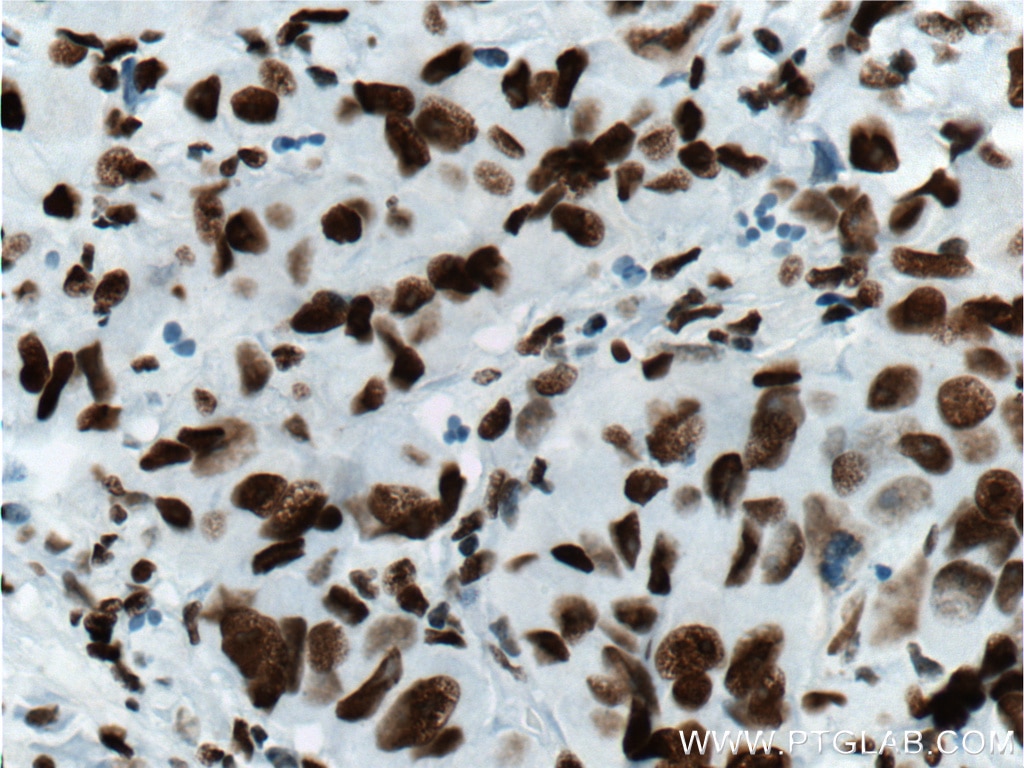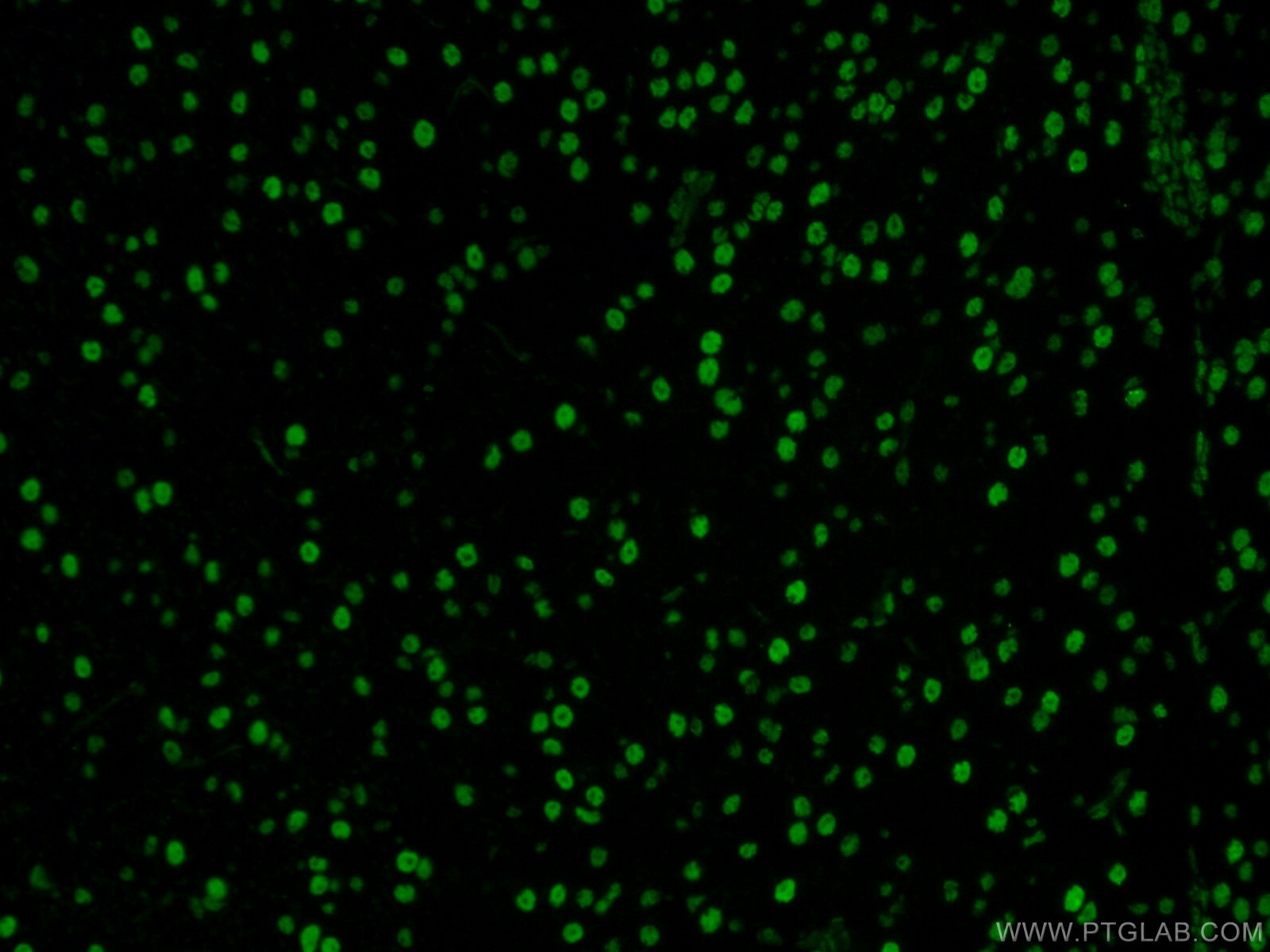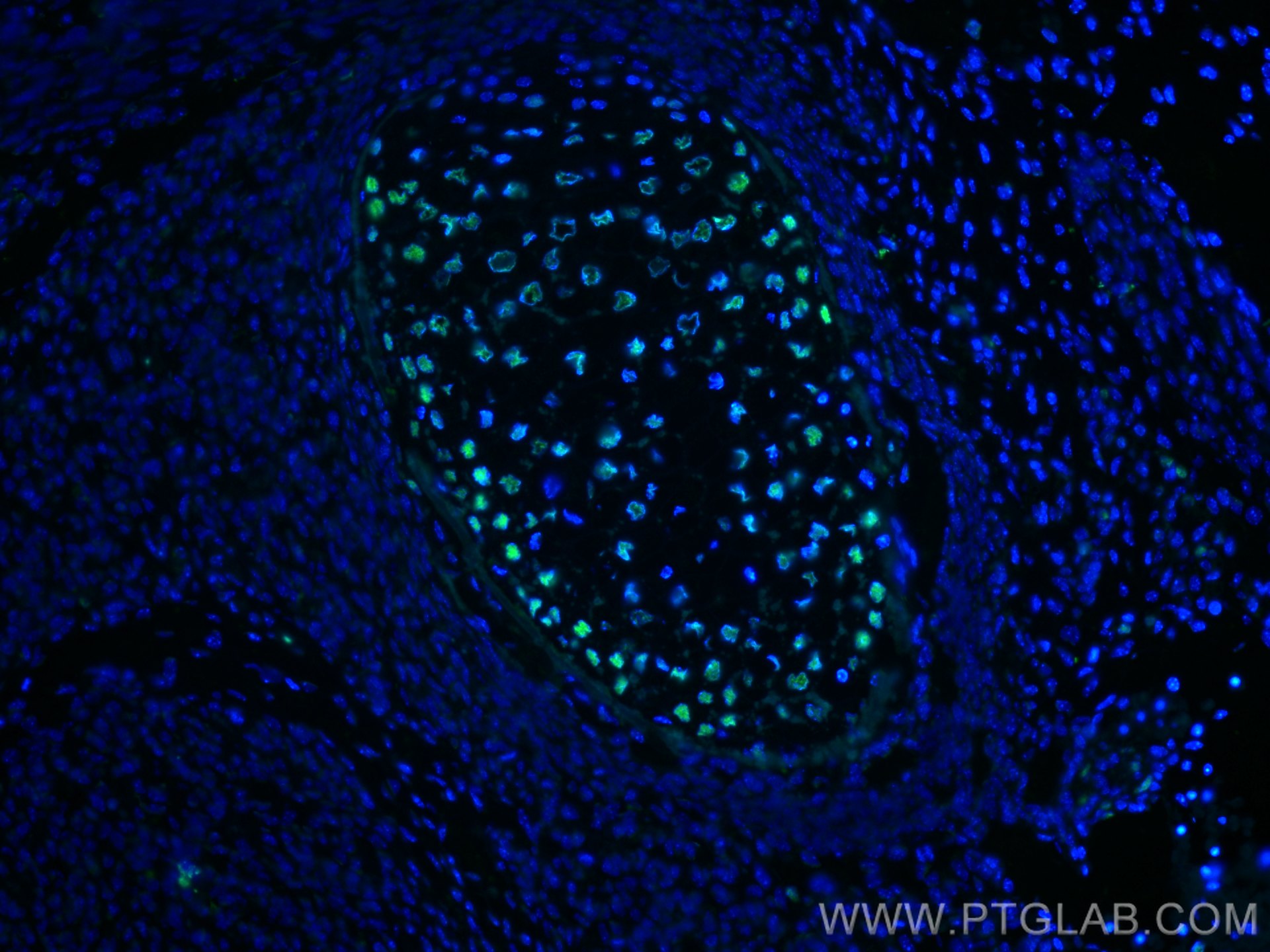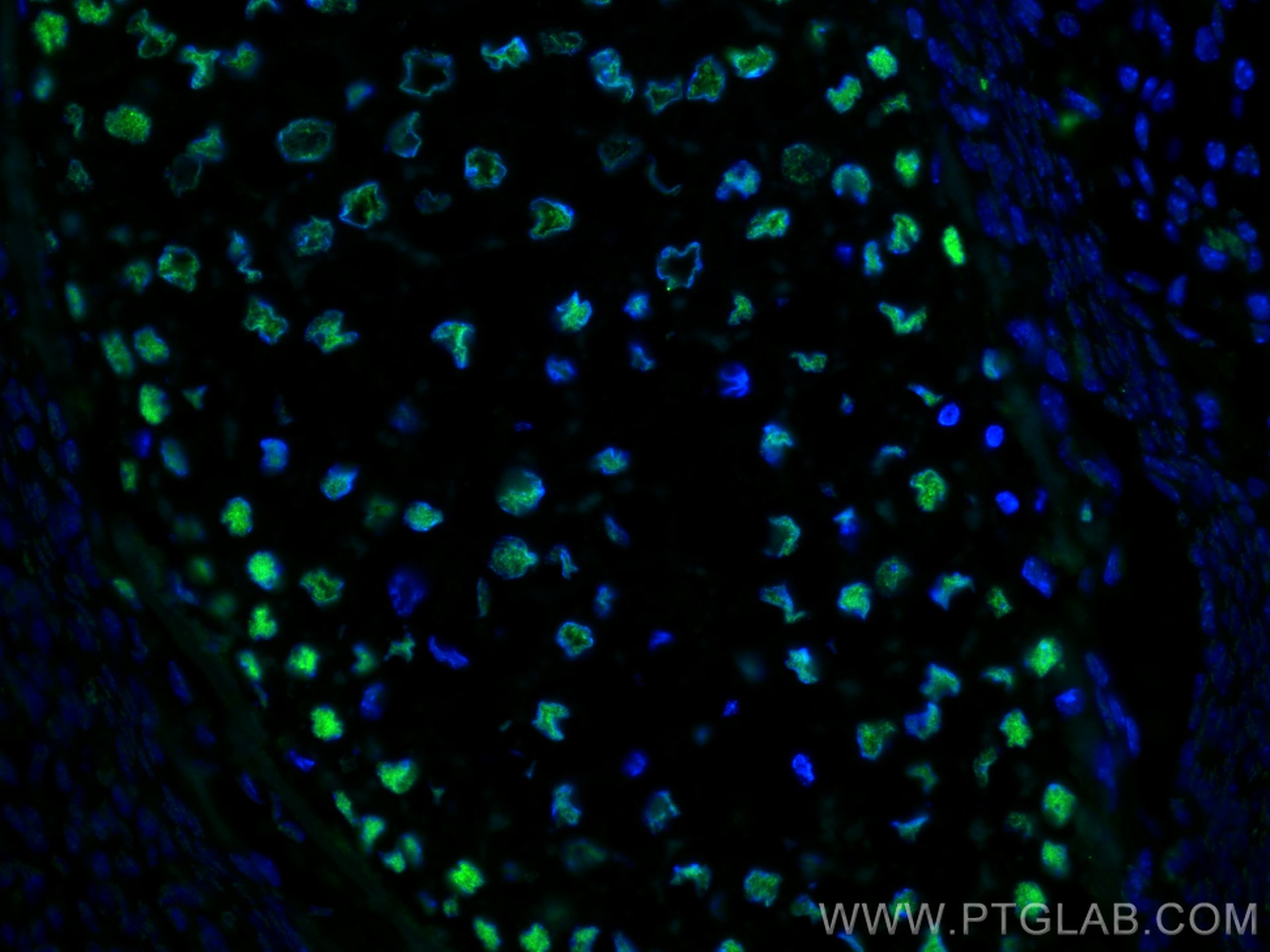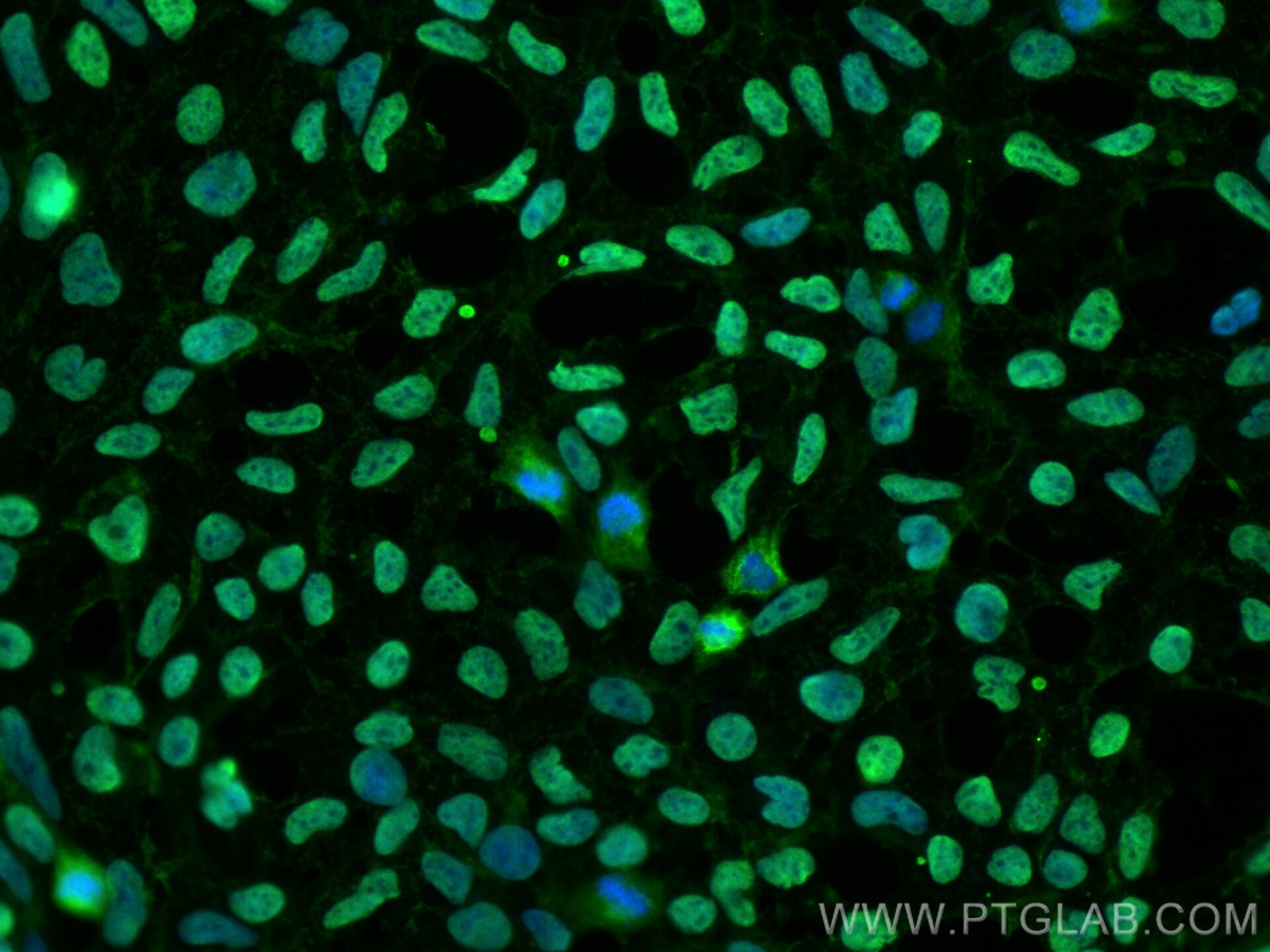- Featured Product
- KD/KO Validated
DACH1 Monoklonaler Antikörper
DACH1 Monoklonal Antikörper für WB, IHC, IF/ICC, IF-P, ELISA
Wirt / Isotyp
Maus / IgG1
Getestete Reaktivität
human, Maus, Ratte
Anwendung
WB, IHC, IF/ICC, IF-P, IP, ELISA
Konjugation
Unkonjugiert
CloneNo.
3B6D2
Kat-Nr. : 60082-1-Ig
Synonyme
Geprüfte Anwendungen
| Erfolgreiche Detektion in WB | MCF-7-Zellen, C6-Zellen, HEK-293-Zellen, L02-Zellen, ROS1728-Zellen |
| Erfolgreiche Detektion in IHC | Maushirngewebe, humanes Endometriumkarzinomgewebe, humanes Prostatakarzinomgewebe Hinweis: Antigendemaskierung mit TE-Puffer pH 9,0 empfohlen. (*) Wahlweise kann die Antigendemaskierung auch mit Citratpuffer pH 6,0 erfolgen. |
| Erfolgreiche Detektion in IF-P | Mausembryogewebe, Maushirngewebe |
| Erfolgreiche Detektion in IF/ICC | HEK-293-Zellen |
Empfohlene Verdünnung
| Anwendung | Verdünnung |
|---|---|
| Western Blot (WB) | WB : 1:1000-1:4000 |
| Immunhistochemie (IHC) | IHC : 1:10-1:100 |
| Immunfluoreszenz (IF)-P | IF-P : 1:200-1:800 |
| Immunfluoreszenz (IF)/ICC | IF/ICC : 1:500-1:2000 |
| It is recommended that this reagent should be titrated in each testing system to obtain optimal results. | |
| Sample-dependent, check data in validation data gallery | |
Veröffentlichte Anwendungen
| KD/KO | See 1 publications below |
| WB | See 4 publications below |
| IF | See 1 publications below |
| IP | See 1 publications below |
Produktinformation
60082-1-Ig bindet in WB, IHC, IF/ICC, IF-P, IP, ELISA DACH1 und zeigt Reaktivität mit human, Maus, Ratten
| Getestete Reaktivität | human, Maus, Ratte |
| In Publikationen genannte Reaktivität | human, Maus |
| Wirt / Isotyp | Maus / IgG1 |
| Klonalität | Monoklonal |
| Typ | Antikörper |
| Immunogen | DACH1 fusion protein Ag4474 |
| Vollständiger Name | dachshund homolog 1 (Drosophila) |
| Berechnetes Molekulargewicht | 79 kDa |
| Beobachtetes Molekulargewicht | 97-110 kDa |
| GenBank-Zugangsnummer | BC021219 |
| Gene symbol | DACH1 |
| Gene ID (NCBI) | 1602 |
| Konjugation | Unkonjugiert |
| Form | Liquid |
| Reinigungsmethode | Protein-G-Reinigung |
| Lagerungspuffer | PBS with 0.02% sodium azide and 50% glycerol |
| Lagerungsbedingungen | Bei -20°C lagern. Nach dem Versand ein Jahr lang stabil Aliquotieren ist bei -20oC Lagerung nicht notwendig. 20ul Größen enthalten 0,1% BSA. |
Hintergrundinformationen
DACH1, a homologue of the Drosophila dachshund gene, is a key regulator of cell fate determination during eye, leg, and brain development in the fly. Through interacting with NCoR and Smad4, DACH1 is able to inhibit the transforming growth factor-beta (TGF-beta) signaling pathway. DACH1 can inhibit breast cancer cellular proliferation via cyclin D1, suggesting a possible role in tumor suppression. Additionally, DACH1 plays an important role in negative regulation of RANKL (Receptor activator of NF-kappaB ligand ) gene expression in marrow stromal/preosteoblast cells. Dach1 expression is enriched in rECs, which are associated with osteoprogenitors and bone-resorbing osteoclasts, and overexpression of DACH1 in postnatal mice induces a strong increase in arteries and type R capillaries, leading to local metabolic changes and enabling trabecular bone formation in normally highly hypoxic areas of the diaphysis (PMID: 39528700). Moreover, Loss of DACH1 expression might be involved in endometrial cancer progression. Four isoforms of DACH1 are produced by alternative splicing, but isoform1(97-110kd) is the predominantly expressed form in tissue. This antibody is a mouse monoclonal antibody raised against residues near the C terminus of human DACH1.
Protokolle
| PRODUKTSPEZIFISCHE PROTOKOLLE | |
|---|---|
| WB protocol for DACH1 antibody 60082-1-Ig | Protokoll herunterladen |
| IHC protocol for DACH1 antibody 60082-1-Ig | Protokoll herunterladenl |
| IF protocol for DACH1 antibody 60082-1-Ig | Protokoll herunterladen |
| STANDARD-PROTOKOLLE | |
|---|---|
| Klicken Sie hier, um unsere Standardprotokolle anzuzeigen |
Publikationen
| Species | Application | Title |
|---|---|---|
Am J Respir Cell Mol Biol DACH1 Attenuates Airway Inflammation in COPD by Activating NRF2 Signaling | ||
Cell Biol Int DACH1 inhibits the proliferation and migration of papillary thyroid carcinoma | ||
Front Oncol Identification and verification of the temozolomide resistance feature gene DACH1 in gliomas
| ||
Clin Exp Metastasis Lung-derived soluble factors support stemness/plasticity and metastatic behaviour of breast cancer cells via the FGF2-DACH1 axis |
